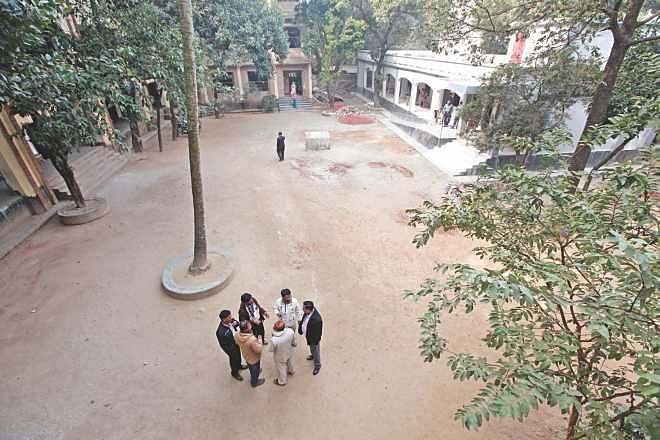One-Sided and Abnormal
One-Sided and Abnormal

After holding a farcical election on February, 15 in 1996, then Chief Election Commissioner Justice Sadeque had expressed his happiness for holding the polls regardless of the people's participation in it. Lowest turnout of voters (only 26.5 percent), widespread violence and rigging in many constituencies destroyed the credibility of the election held amid a boycott by the Awami League, Jatiya Party and other political parties. Justice Sadeque however did not bother much about the facts. He told newsmen: "It is not important to consider how many voters have cast votes. Election was held and this is important."
Around 18 years after that, Kazi Rakibuddin Ahmad has blamed the opposition's boycott and foggy weather for the low turnout in the January 5 election. He might take some credit for a better turnover than the February 15 polls. The turnout of January 5 polling is around 40 percent. Under his leadership, the Election Commission had also posted the new record of people getting elected without any election. In the February election, 49 candidates were elected uncontested. But this time the number rose to 153. This is unprecedented, which is a world record.
Justice Aziz is an unfortunate man. He could not put his name in the record of holding a farcical election. Under his leadership, the EC was desperately moving towards holding a one-sided election scheduled for January 22, 2007 to install BNP-led alliance in power. But his venture could not succeed. At that time an intervention of the armed forces' foiled his bid though they helped the then BNP regime in 1996 to hold a farcical election by maintaining law and order. BNP chief Khaleda Zia and her party colleagues had expected the same cooperation in 2007. But in the changed situation, they did not get it. So, they were unhappy with the changeover in January 2007.
This time around, the armed forces did not play the same role as it did in 2007, which benefited Prime Minister Sheikh Hasina and her ruling AL to hold a one-sided election, ending all uncertainties over it. It has certainly made Hasina happy. In the post-poll press conference on January 6, she said she was happy to hold the election. She has termed the turnout 'adequate', and has announced that the government will implement the ruling AL's electoral pledges.
Hasina looks all set to be sworn in as the Prime Minister again. She will touch the record made by her archrival Khaleda of being the prime minister thrice since restoration of parliamentary democracy in 1991. But her government will be less representative. The election of MPs without any vote has denied more than half of the country's 9.19 crore voters their voting rights. So, Hasina's new government will have representation of only 20 percent of the total voters. So the representation of people is very poor compared to the one enjoyed by the present government, which was formed through the 2008 parliamentary election. More than 87 percent voters cast their votes in the 2008 election with not a single MP elected unopposed. How will her new government be a government by the people, of the people, and for the people? How will her new government claim that it has people's mandate to govern the country?
In the parliamentary democracy, the role of the opposition is very crucial. But the new parliament will have the weakest opposition. A fraction of Jatiya Party-led by Raushan Ershad is supposed to be the main opposition in the new parliament. Those who will act as opposition MPs were elected on the ruling AL's favour. So, it is now clear that the opposition bench will remain loyal to the new government. Will the opposition be able to act as a shadow cabinet?
In the last parliamentary election held in December 2008, the AL alone won 230 seats. This time it alone has already won 232 seats with 127 going uncontested. The AL may win almost of eight other seats which will go re-polling on January 16. The size of the treasury bench will be bigger if 13 independent candidates, most of whom belong to the AL and 11 candidates of Workers Party and Jatiya Samajtantrik Dal, two allies of AL-led alliance, remain in the AL-led alliance. So, the parliament looks all set to be a one-sided affair.
Will the brute majority be able to work for the welfare of the people? The previous records do not encourage us to be hopeful. Since the country's independence, brute majority has always destroyed balance of power, allowing the cabinet to become a parliamentary dictatorship.
The coming days will be riskier for Hasina, who is leading a brute majority government that is the product of a one-sided, abnormal election, which in no way can be called a general election in which more than half of the country's electorates were denied their right to cast their vote to elect their representatives.
After the January 5 election, Bangladesh stands at an extraordinary crossroads. It has never witnessed such a situation. In view of many foreign newspapers, the feuding politics can lead Bangladesh to the brink.
The writer is Senior Reporter, The Daily Star.
